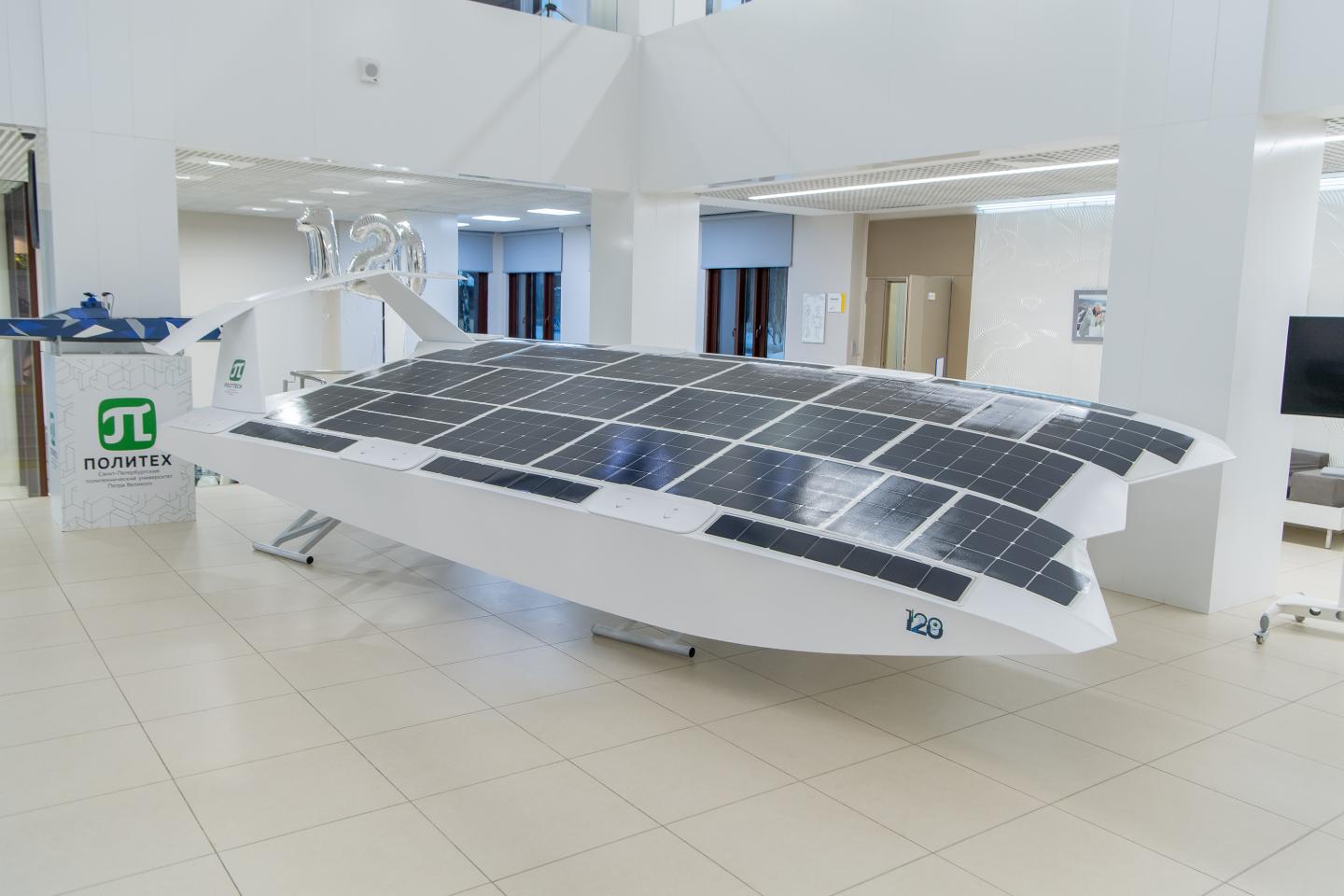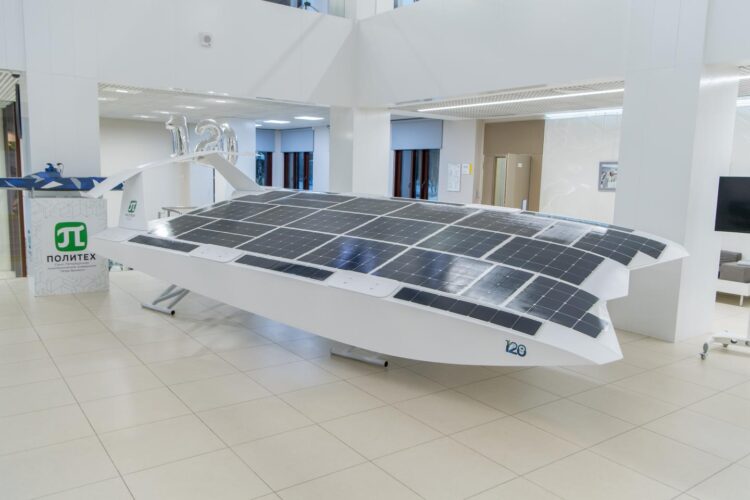The wing-in-ground-effect vehicle supported by the AI system

Credit: Peter the Great St.Petersburg Polytechnic University
Young engineers from Peter the Great St.Petersburg Polytechnic University (SPbPU) are working on inventing the wing-in-ground-effect vehicle supported by the AI system. The “flying boat” is capable of developing high speed and its power reserve is unlimited. Certain number of solar panels should be located on the wings of the boat for specific tasks. Researchers are planning to use the “Storm-600” wing-in-ground-effect vehicle as a mobile platform for recharging the air and underwater drones.The wing-in-ground-effect vehicle is also useful for patrolling the water areas, conducting search and rescue operations and cargo delivery.
The test of the final prototype of the wing-in-ground-effect vehicle is planned for the summer 2020. The “flying boat” will be tested on the Neva river in St. Petersburg (Russia) for more than a week.
“The device literally floats above the water. There is a screen effect when an aerodynamic cushion is created under the wing of the aircraft. Our wing-in-ground-effect vehicle has long wings, thus it moves along the air cushion itself. On the physics lessons at school the experiment is demonstrated when a tennis ball hangs in the stream of the air from the vacuum cleaner: it doesn’t fall down and doesn’t fly up. The same principle is used here”, said Alexei Maistro, the researcher of the Higher School of Physics and Materials Technology SPbPU, the Head of the project.
Solar batteries are installed on the hull and wings of the wing-in-ground-effect vehicle, operating along with the system of the energy consumption planning (it includes special storage devices which can distribute the energy), this allows the boat to move continuously along the water area.
“We installed a laser radar (lidar) on the boat to train the wing-in-ground-effect vehicle to recognize the obstacles and avoid them. And the radio radar was also added to increase the range of the vision system to 30 miles”, added Alexei Maistro.
An important competitive advantage of the “Storm-600” wing-in-ground-effect vehicle is its speed, currently its maximum speed is 200 km / h. But researchers plan to increase it by at least another 100 km / h.
Solar-powered wing-in-ground-effect vehicle became lighter due to the lack of fuel tanks. The SPbPU engineers proposed the solution, so the pilot was replaced by AI technology, which also reduced the weight of the structure.
###
Media Contact
Raisa Bestugina
[email protected]





